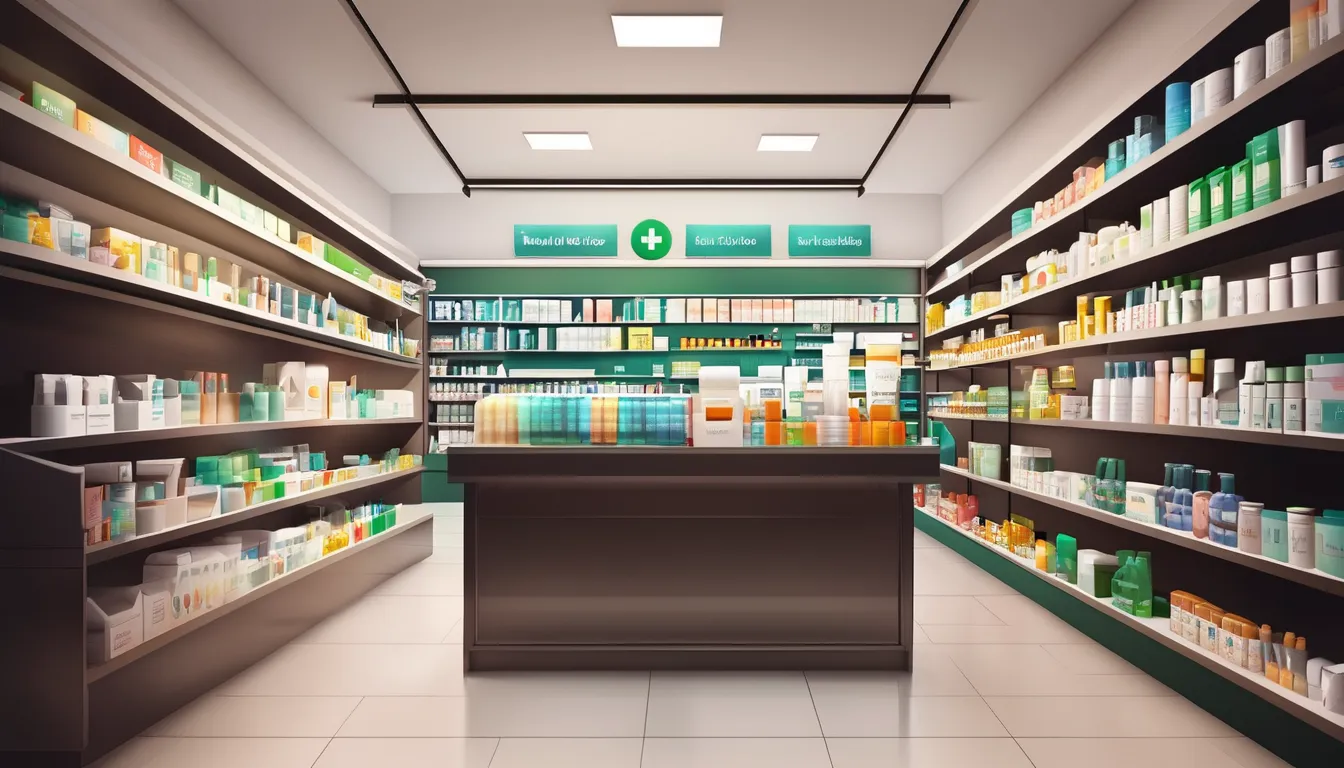
You’re likely familiar with visiting your local pharmacy for flu shots or to pick up prescriptions, but they offer more than just that. Many pharmacies now provide various preventive medications and vaccines, making them a one-stop-shop for maintaining your health. You can get statins to lower your cholesterol, beta blockers to manage your blood pressure, or vaccines to protect against serious diseases like pneumonia and shingles. But what types of services can you expect from these pharmacies, and how can they help you stay healthy? Let’s take a closer look at the options available to you.
Types of Preventive Medications
When you think of preventive medications, you likely picture a daily vitamin or a seasonal flu shot. However, these are just a few examples of the many types of preventive medications available.
Prescription medications like statins, which lower cholesterol, and beta blockers, which manage blood pressure, can help prevent heart disease and strokes. Aspirin therapy can also be prescribed to prevent heart attacks in people with high cardiovascular risk.
Birth control pills and condoms are other examples of preventive medications that protect against unintended pregnancy and sexually transmitted diseases.
Additionally, hormone replacement therapy (HRT) can help prevent osteoporosis in postmenopausal women. Medications that prevent blood clots, such as anticoagulants, can also reduce the risk of deep vein thrombosis (DVT) in people at high risk.
It’s essential to discuss your individual health risks and needs with your doctor to determine the best preventive medications for you.
Vaccines Available at Pharmacies
In addition to preventive medications, vaccines play a vital role in maintaining your health. You can find various vaccines at local pharmacies, which help protect you from infectious diseases.
These vaccines include flu shots, pneumococcal conjugate vaccines, and Tdap vaccines, among others. You can also get vaccines for shingles, meningitis, and HPV.
If you’re planning to travel abroad, you may need additional vaccinations, such as hepatitis A, typhoid, or yellow fever vaccines. Your pharmacist can advise you on the necessary vaccines based on your destination.
Some pharmacies also offer vaccines for specific age groups, like senior citizens or children. For example, the pneumococcal conjugate vaccine is recommended for adults 65 years and older.
Before getting vaccinated, inform your pharmacist about any allergies, medical conditions, or medications you’re taking. This will ensure you receive the right vaccine and minimize any potential side effects.
Pharmacy Immunization Services
Pharmacies offering immunization services go beyond just providing vaccines. They offer you a range of services to protect your health.
When you visit a pharmacy for immunization services, you can expect to receive personalized attention from trained pharmacists or healthcare professionals. They’ll assess your vaccination history and provide recommendations tailored to your specific needs.
Pharmacy immunization services typically include administration of vaccines, education on vaccine benefits and risks, and guidance on potential side effects.
You’ll also receive information on follow-up appointments and booster shots. Some pharmacies may offer additional services, such as health screenings, travel consultations, and medication therapy management.
Before receiving a vaccine, you’ll be asked to provide your medical history and answer a few questions to ensure the vaccine is safe for you.
The pharmacist or healthcare professional will then administer the vaccine and provide instructions on what to expect after the vaccination.
With pharmacy immunization services, you can rest assured that you’re receiving high-quality care in a convenient and accessible setting.
Common Infections to Prevent
You’ve taken the first step by getting vaccinated at a pharmacy that offers immunization services. Now, it’s essential to know the common infections you’re protecting yourself against. Influenza, or the flu, is one of the most prevalent infections that can be prevented with a vaccine. Each year, the flu vaccine is updated to combat the latest strain of the virus.
Pneumococcal disease, which can cause pneumonia, is another infection that can be prevented with a vaccine. This disease is particularly hazardous for older adults and young children.
Other common infections that can be prevented with vaccines include shingles, pertussis (whooping cough), and meningococcal disease. Shingles can cause painful rashes, while pertussis and meningococcal disease can lead to severe respiratory and neurological problems.
Benefits of Pharmacy Vaccinations
Getting vaccinated at a pharmacy that offers immunization services can be an incredibly convenient experience. You can walk in or schedule an appointment at a time that’s best for you, eliminating the need Magic Mush rooms for sale a doctor’s visit. Many pharmacies also offer extended hours and weekend availability, making it easier to fit a vaccination into your busy schedule.
When you get vaccinated at a pharmacy, you’re not only protecting yourself against serious diseases, but also helping to prevent the spread of infection in your community.
Pharmacy vaccinations can also save you time and money by reducing the need for doctor visits and lost workdays due to illness.
Additionally, pharmacists are trained healthcare professionals who can answer your questions and provide personalized guidance on vaccine options. They can also help you stay on track with recommended vaccination schedules and provide reminders for future immunizations.
Frequently Asked Questions
Can I Get a Prescription From a Pharmacist Directly?
You can consult a pharmacist for minor issues, but they can’t write prescriptions from scratch. However, some states allow pharmacists to prescribe medications under certain conditions or through collaborative agreements with doctors.
What Insurance Covers Pharmacy Vaccination Services?
You’ll find that many insurance plans cover pharmacy vaccination services, including Medicare Part D, Medicaid, and most private insurers, as they often include immunizations and preventive care in their standard coverage packages, check your policy.
Can I Get Vaccinated if I Have a Fever?
If you have a fever, you’re likely wondering if you can get vaccinated. Generally, you’ll need to wait until your fever subsides to get vaccinated, as a fever can be a contraindication for some vaccines.
Are Pharmacy Vaccines Safe for People With Allergies?
You consider getting vaccinated but worry about allergies. Generally, vaccines are safe, but it’s essential you inform your doctor or pharmacist about any allergies to ensure the vaccine’s ingredients won’t cause a reaction.
Can I Get a Vaccine at a Pharmacy Outside My Network?
You’re considering getting a vaccine at an out-of-network pharmacy, but check your insurance policy first. Many pharmacies offer vaccinations, and some may accept your insurance, even if they’re not in-network, with prior approval.
Conclusion
By visiting your local pharmacy for preventive medications and vaccines, you’re taking control of your health. You can get prescriptions for statins to lower cholesterol and beta blockers to manage blood pressure. Additionally, you can receive various vaccinations, including flu shots, pneumococcal conjugate vaccines, and shingles vaccines. Pharmacists will guide you through the process, assess your vaccination history, and provide education on vaccine benefits and risks to keep you protected and informed.


